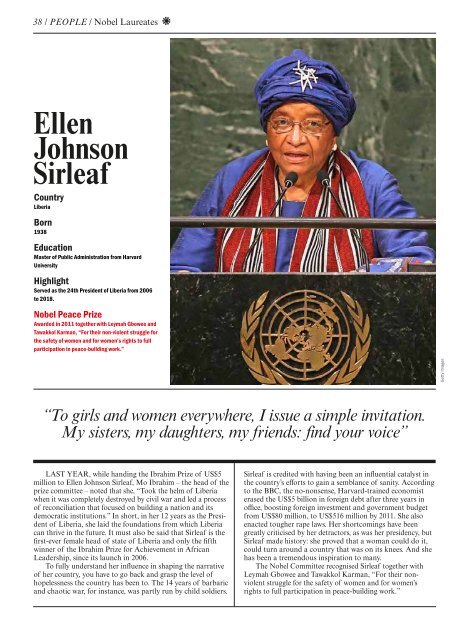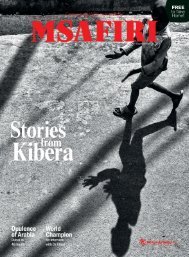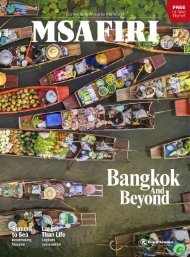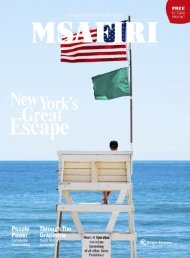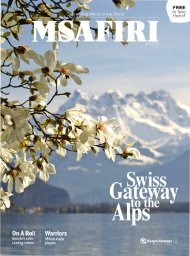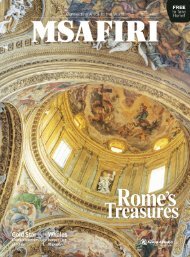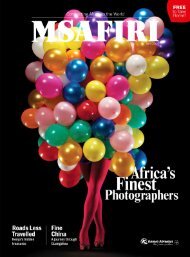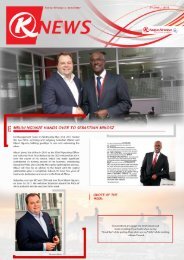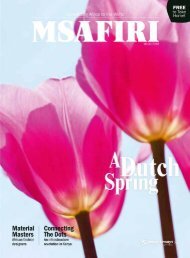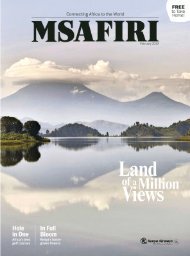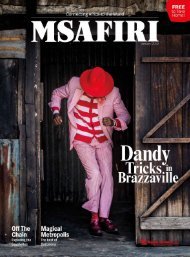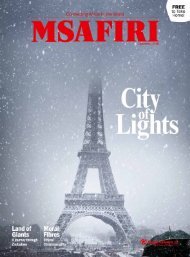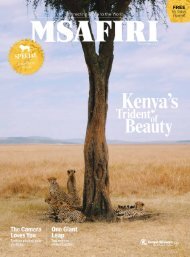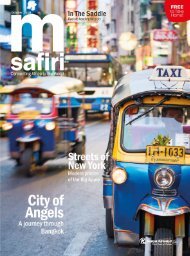Create successful ePaper yourself
Turn your PDF publications into a flip-book with our unique Google optimized e-Paper software.
38 / PEOPLE / Nobel Laureates<br />
PEOPLE / 39<br />
Ellen<br />
Johnson<br />
Sirleaf<br />
Country<br />
Liberia<br />
Desmond<br />
Tutu<br />
Country<br />
South Africa<br />
Born<br />
1931<br />
Born<br />
1938<br />
Education<br />
Master’s degree from King’s College London<br />
Education<br />
Master of Public Administration from Harvard<br />
University<br />
Highlight<br />
Served as the 24th President of Liberia from 2006<br />
to <strong>2018</strong>.<br />
Highlight<br />
Archbishop of Cape Town from 1986 to 1996<br />
Nobel Peace Prize<br />
Awarded in 1984 for his, “Role as a unifying leader<br />
figure in the campaign to resolve the problem of<br />
apartheid in South Africa.”<br />
Nobel Peace Prize<br />
Awarded in 2011 together with Leymah Gbowee and<br />
Tawakkol Karman, “For their non-violent struggle for<br />
the safety of women and for women’s rights to full<br />
participation in peace-building work.”<br />
Getty Images<br />
Hollandse Hoogte<br />
“To girls and women everywhere, I issue a simple invitation.<br />
My sisters, my daughters, my friends: find your voice”<br />
“My humanity is bound up in yours, for we can<br />
only be human together”<br />
LAST YEAR, while handing the Ibrahim Prize of US$5<br />
million to Ellen Johnson Sirleaf, Mo Ibrahim – the head of the<br />
prize committee – noted that she, “Took the helm of Liberia<br />
when it was completely destroyed by civil war and led a process<br />
of reconciliation that focused on building a nation and its<br />
democratic institutions.” In short, in her 12 years as the President<br />
of Liberia, she laid the foundations from which Liberia<br />
can thrive in the future. It must also be said that Sirleaf is the<br />
first-ever female head of state of Liberia and only the fifth<br />
winner of the Ibrahim Prize for Achievement in African<br />
Leadership, since its launch in 2006.<br />
To fully understand her influence in shaping the narrative<br />
of her country, you have to go back and grasp the level of<br />
hopelessness the country has been to. The 14 years of barbaric<br />
and chaotic war, for instance, was partly run by child soldiers.<br />
Sirleaf is credited with having been an influential catalyst in<br />
the country’s efforts to gain a semblance of sanity. According<br />
to the BBC, the no-nonsense, Harvard-trained economist<br />
erased the US$5 billion in foreign debt after three years in<br />
office, boosting foreign investment and government budget<br />
from US$80 million, to US$516 million by 2011. She also<br />
enacted tougher rape laws. Her shortcomings have been<br />
greatly criticised by her detractors, as was her presidency, but<br />
Sirleaf made history: she proved that a woman could do it,<br />
could turn around a country that was on its knees. And she<br />
has been a tremendous inspiration to many.<br />
The Nobel Committee recognised Sirleaf together with<br />
Leymah Gbowee and Tawakkol Karman, “For their nonviolent<br />
struggle for the safety of women and for women’s<br />
rights to full participation in peace-building work.”<br />
DESMOND TUTU once said, “Despite all the ghastliness<br />
in the world, human beings are made for goodness. The ones<br />
that are held in high regard are not militarily powerful, nor<br />
even economically prosperous; they have a commitment to try<br />
and make the world a better place.” Who would have thought<br />
that the son of a teacher, who grew up in the small South<br />
African town of Klerksdorp – at a time when black people<br />
were not allowed to eat in restaurants where white people ate<br />
– would arrest the world with his work?<br />
Tutu discovered books and education when his family<br />
moved to Johannesburg. He became a teacher, like his father,<br />
got a Master’s degree from King’s College London, taught<br />
English and history, and later studied theology before being<br />
ordained as an Anglican deacon in 1960 and as a priest in<br />
1961. His rise to international prominence started when he<br />
became the first person to be appointed as the Anglican dean of<br />
Johannesburg in 1975.<br />
From then onwards, Tutu’s voice grew louder, becoming one<br />
of the most prominent spokespeople in the South African antiapartheid<br />
movement. In the early 1970s, his theology changed<br />
when he discovered the liberation theology, a term commonly<br />
used by the Peruvian priest Gustavo Gutiérrez. He consistently<br />
used his position to bravely denounce the social injustice at<br />
this dark time of apartheid.<br />
In 1984, Tutu was awarded the Nobel Peace Prize, which<br />
the Nobel Committee said was, “Not only as a gesture of<br />
support to him and to the South African Council of Churches,<br />
of which he is the leader, but also to all individuals and groups<br />
in South Africa who, with their concern for human dignity,<br />
fraternity and democracy, incite the admiration of the world.”


